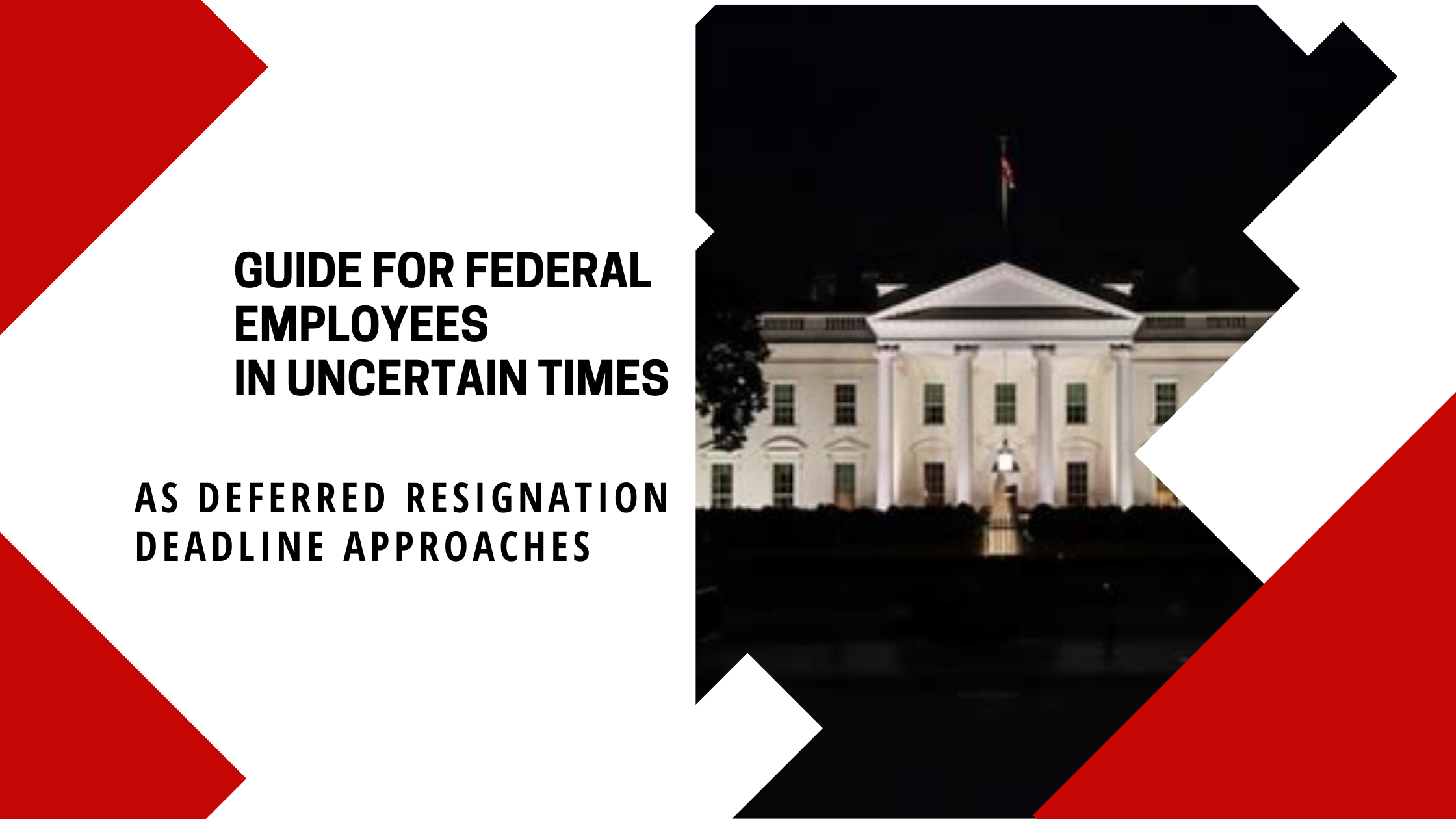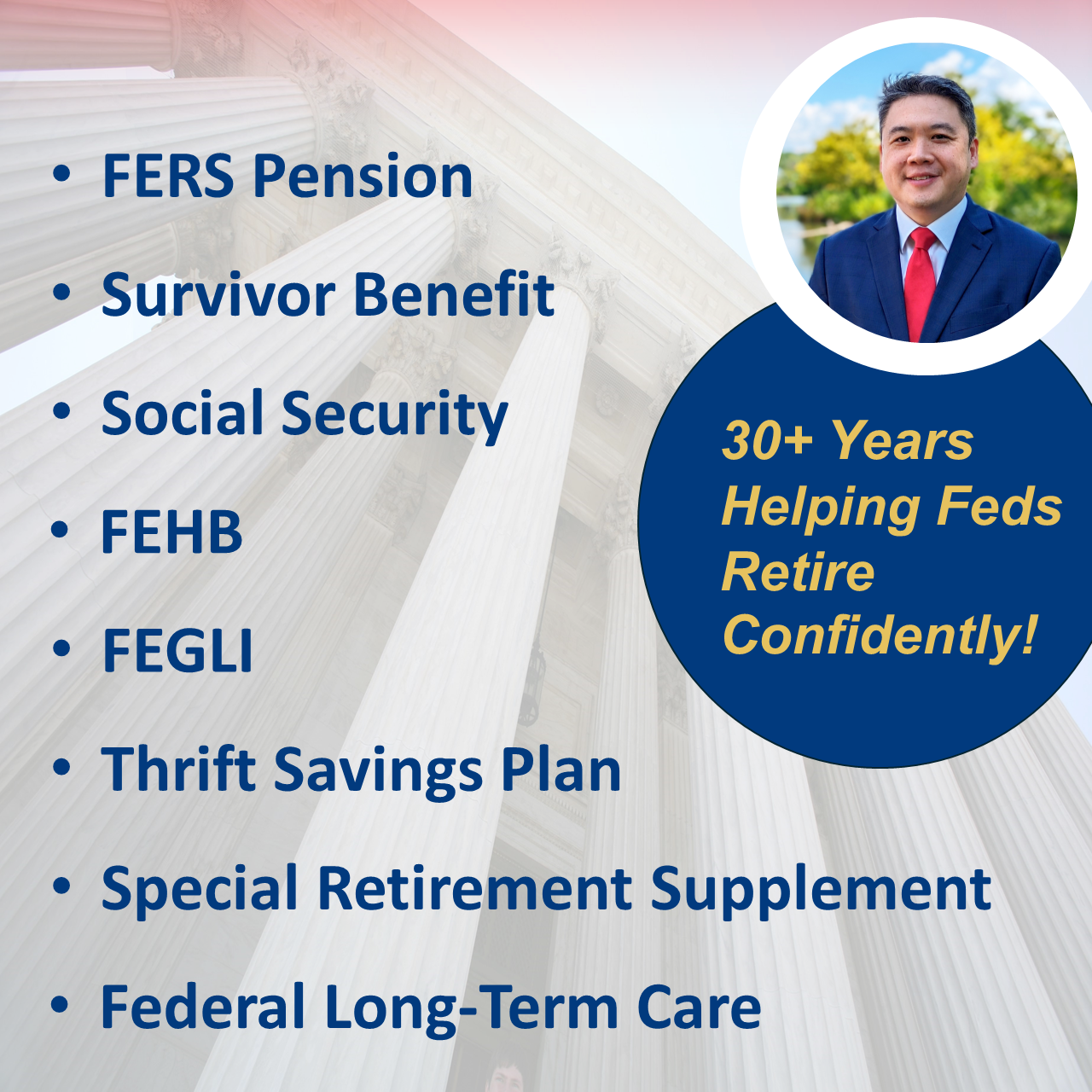February 6th is when federal employees must choose to take the President’s buy-out offer or not, but too much uncertainty surrounds the outcomes of accepting the offer and officially resigning.
Too Many Questions Remain Around “Deferred Resignation” Offer from White House
Federal Employee unions and other advocacy groups for the government’s workforce are urging feds not to accept the deferred resignation offer that was sent by President last week. This article will review how they came to this decision, the uncertainty surrounding the buyout itself, and what federal employees can do to make an informed decision about their employment in the federal government.
Uncertainty Remains About Retirement and Benefits
Can the White House Guarantee Pay Until End of September?
Administrative leave is regulated by the leaders of federal agencies, not OPM or the President, and can only be used for “brief absences.” Not only that, but unions and groups like NARFE (National Active and Retired Federal Employees Association) warn feds should be wary of accepting the offer because the months of pay promised are not necessarily guaranteed. Federal rules and laws are unclear if the executive branch has this power. Essentially, the deferred resignation letter could be a way to trick federal employees to leaving their post without being able to deliver what incentivized them to leave. The groups advocating for federal workers also bring up similarities to mass layoffs at other companies previously led by Elon Musk, who is now in charge at the new Department of Government Efficiency (DOGE).
VERA and Other Retirement Questions
The buyout letter utilizes the language “early retirement,” but it remains unclear if VERA (Voluntary Early Retirement Authority) retirement rules are in place or not. If so, then anyone with 25 years of creditable federal service can apply for immediate retirement under FERS, regardless of age, or at age 50 with at least 20 years of service. If VERA (or “early out”) eligibility rules don’t apply, then check out this article about deferred and postponed retirement options in different “differed resignation” scenarios.
And then what about early-out retirement offers that are already in place at different agencies? For example, does the February 28 deadline to accept an early-out retirement at the FCC still stand?
More Questions About Pay After Accepting Deferred Resignation
Will annual leave and sick leave still accrue normally before the September 30th cutoff? What about other deductions such as FERS contributions, TSP matching contributions, or FICA and Medicare taxes? None of this is clear at the moment. Also, considering the OPM Backlog of retirement claims, which just experienced its annual surge of incoming claims, will the personnel agency itself have enough staff to process an influx of retirement claims, should a large portion of federal workers resign?
What Should Federal Government Employees Do?
First and foremost, employees of federal agencies should listen to their HR manager as to what directly applies to their job and benefits, they should have some directive passed down from the head of the organization. It is also important to either join, or at least pay close attention to, federal unions and advocacy groups such as NARFE, AFGE (American Federation of Government Employees), and NTEU (National Treasury Employees Union).
Revise Your Financial Plan and Benefits
Because of the immense uncertainty at the moment, it is probably a good time to focus on what you can control and your financial plan is one of those things. Talk with a financial advisor for federal employees and make sure you are prepared for all scenarios that could be played out over the course of the next few years – both good and bad.
Knowledge is Confidence!
Best Fiduciary Financial Advisors for Federal Employees | The PlanWell Difference
Federal employees have unique financial needs and opportunities, especially when it comes to maximizing their retirement benefits. Navigating the complexities of federal employee benefits can be daunting, which is why working with fiduciary financial advisors is crucial. Fiduciary advisors, like those here at PlanWell Financial, are committed to serving federal employees and retirees, helping them achieve their financial goals and secure a comfortable retirement. In this article, we will explore how fiduciary financial advisors can help federal employees with wealth management, the importance of a tailored retirement plan, and the advantages of choosing a federal employee fiduciary adviser.
What is a Fiduciary Financial Advisor and Why Do Federal Employees Need One?
Understanding Fiduciary Responsibility in Federal Employee Retirement Planning
Fiduciary responsibility is a legal and ethical obligation that requires financial advisors to act in their clients’ best interests. This is particularly important for federal employees who need to ensure that their financial planning aligns with their unique benefits and retirement goals. Fiduciary financial advisors are certified professionals who prioritize transparency and trust, providing unbiased advice that helps federal workers make informed decisions about their financial future and benefits. By adhering to fiduciary standards, along with a vast understanding of federal employment benefits, fiduciaries at PlanWell can offer peace of mind to those who work in public service.
Planning for Retirement from the U.S. Federal Government
They possess specialized knowledge of federal benefits, including the Thrift Savings Plan (TSP), FERS retirement pension, and Social Security, which are integral components of a federal employee’s retirement plan. Advisors at PlanWell help federal employees navigate these complex systems, including how they can interact with outside 401k or IRA or non-retirement investment portfolio. Here at PlanWell, our financial planners hold the Chartered Federal Employee Benefits Consultant (ChFEBC), CFP® designation, along being Accredited Investment Fiduciaries (AIF) and Chartered Federal Employees Benefits Consultants, ensuring your are in the right hands to help you achieve your financial independence after leaving federal service. By crafting personalized strategies, a retirement planner at PlanWell can enable federal employees to build a robust retirement portfolio that aligns with their long-term financial goals, knowing it’s important to find someone you can trust.
TSP Planner for Federal Retirement
Exploring the Thrift Savings Plan (TSP)
The Thrift Savings Plan (TSP) is a cornerstone of federal employee retirement planning. It offers a tax-advantaged way to save for retirement, similar to a 401(k) plan in the private sector. Fiduciary financial advisors help federal employees understand the intricacies of the TSP, including contribution limits, investment options, and withdrawal strategies. By optimizing their TSP contributions, federal employees can significantly enhance their retirement savings, ensuring a more secure financial future. Many financial firms claim to have knowledge of the TSP, especially in the DC area, but tend to base investment decisions involving TSP funds off of cookie-cutter risk tolerance questionnaires. An advisory relationship with an advisor at PlanWell Financial is a completely personalized one, based off much more than how much investment risk someone claims to have when filling out a generic form.
Best TSP Investment Strategy for a Secure Retirement
Diversification is key to a successful retirement plan – for investments and income sources. The TSP is mainly comprised of 4 index funds and the unique G Fund. These funds have low fees and are a part of one of the best benefits packages still offered to new federal hires. By spreading investments across various asset classes, federal employees can mitigate risks and increase the potential for growth, ultimately leading to a more stable and prosperous retirement. Mismanagement of assets, overtrading, and high fees can cost your retirement hundreds of thousands of dollars in the long run. PlanWell advisors can help you not only diversify your investments with a holistic and personal approach, but also offer guidance when it comes to long term care, deciding between FEGLI and private life insurance, health benefits (FEHB), and a whole lot more.
Need to attend a federal benefits seminar? Sign Up for Our Free FERS Webinars!
Steps for Feds to Maximize Their Benefits and Financial Situation Before They Retire
Setting clear financial goals is the first step in effective retirement planning for federal employees. Fiduciary financial advisors assist employees in defining their retirement objectives, whether it’s maintaining a certain lifestyle, traveling, or leaving a legacy for their family. By establishing specific, measurable goals, federal employees can create a roadmap for their financial future, ensuring that their retirement plan aligns with their aspirations.
Why Choose a Fed-Focused Financial Planner?
Fed-focused financial planners possess specialized knowledge of FERS benefits, making them uniquely qualified to assist thousands of federal employees in planning their retirement income strategy. Planners at PlanWell understand the intricacies of government programs like the TSP, FERS, and Social Security, enabling them to provide tailored advice that aligns with the specific needs of federal employees. By choosing a fed-focused planner at PlanWell, employees can benefit from expert guidance that maximizes their retirement potential.
How to Get a Free Consultation with a Federal Employee Fiduciary Financial Advisor?
Reach Out to Us!
If you have additional federal benefit questions, contact our team of CERTIFIED FINANCIAL PLANNER™ (CFP®) and Chartered Federal Employee Benefits Consultants (ChFEBC℠). At PlanWell, we are federal employee financial advisors with a focus on retirement planning. Learn more about our process designed for the career fed.
Preparing for federal retirement? Check out our scheduled federal retirement workshops. Sign up for our no-cost federal retirement webinars at this link. Make sure to plan ahead and reserve your seat for our FERS webinar, held every three weeks. Want to have PlanWell host a federal retirement seminar for your agency? Reach out, and we’ll collaborate with HR to arrange an on-site FERS seminar.
Want to fast-track your federal retirement plan? Skip the FERS webinar and start a one-on-one conversation with a ChFEBC today. You can schedule a one-on-one meeting through our contact page.










